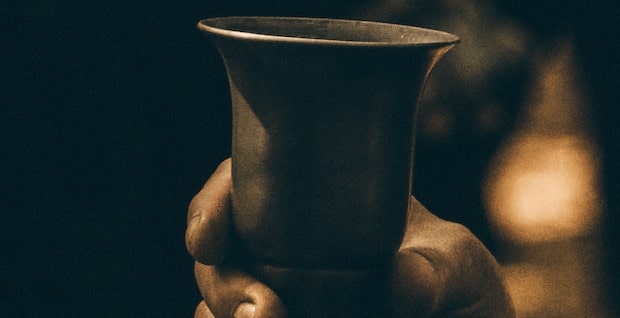We’re entering the Easter season, and Christians around the world are remembering Christ’s death, caused by our sin. But we are also celebrating, because Resurrection Day is our God-given promise that we, too, will one day rise.
This year on the blog, we’re featuring a five-week family Easter Bible study written especially for families. We’ll post one study a week every Friday, starting today, leading up to Easter. It’s an excellent opportunity for your family to remember the story the Bible tells about Jesus’ death and resurrection—but also challenges families to consider three important questions at the end of each study: Who is God? Who is Jesus? Who are we?
***
Week 1: The Last Supper
By Mark Ward
Read Matthew 26:14–35 with your family, then discuss the questions below about the Last Supper. The provided answers aren’t always definitive, but they’ll still hopefully guide your discussion.
Why couldn’t the Jewish high priests arrest Jesus in broad daylight?
Arresting Jesus might have started a riot. At this point, the crowds were supporting Jesus. So the high priests had to find someone who could track Jesus’ movements and let them know when Jesus was away from the crowds. They found their man—or rather, he found them: Judas.
Read several English translations of Matthew 26:25 (perhaps using Logos Bible Software, YouVersion, or BibleHub). How do different versions translate the last phrase of verse 25? What did Jesus mean?
The New Testament was written in Greek. The variation in English translations suggests that the Greek text is unclear and puzzling. Some translations use italics to indicate words supplied by the translators (such as the New American Standard Bible: “You have said it yourself”).
The need to fill in certain words helps show that Jesus’ statement was difficult. Why would Jesus say something that wasn’t entirely clear? Bible scholar D. A. Carson suggests that Jesus says enough “to give Judas a jolt,” but he still leaves the other disciples wondering what he means (Expositor’s Bible Commentary, 2nd ed., 2010; 599). This is like our Lord: he regularly and artfully revealed truth to some people and hid it from others.
Read John 6:52–58. What is Jesus saying about his body and his blood? What do they represent?
Now read Matthew 26:26–28. Would anyone listening to Jesus misunderstand his meaning? Before the Last Supper, what meaning did bread and wine have? What meaning do they have now?
Christians have different ways of interpreting Jesus’ words at the Last Supper. Maybe he intended his statements about the bread and the wine (in Matthew) to connect to what he says in John 6:54: “Whoever feeds on my flesh and drinks my blood has eternal life.”
So what’s the real meaning behind the bread and the wine?
Jesus was Jewish, and hundreds of years earlier, his people were slaves in Egypt. God rescued them and led them out of Egypt in an event called the “exodus.” This story is in the Old Testament.
Read Exodus 12:20–23. What clues does this story give us about the bread and the wine at the Last Supper?
Jesus often took old Jewish traditions and gave them new meaning. The unleavened bread from the exodus story now points ahead to Jesus’ broken body. The lambs’ blood painted on the doorposts in Egypt now points ahead to Jesus’ spilled blood for all human sin. But Another passage in the Old Testament helps us understand something else about Jesus’ blood.
Read Jeremiah 31:31–34. What is a covenant? What is the covenant Jesus mentions in Matthew 26:28?
A covenant is like a promise or an agreement between people. In the Old Testament, prophets like Jeremiah talked about God making a new covenant with his people. Jesus is describing his death as the start of this new covenant. When he died on the cross, God was making a new promise with all people. Jeremiah said the new covenant would bring forgiveness for sins—and Jesus pours out his blood for this very thing.
What does this lesson tell us about God, Jesus, and ourselves?
Who is God?
God is the Father who loved Jesus before the world began and who sent him into the world to save the world.
Who is Jesus?
Jesus is the greatest example of love, the one who gave his body and blood for all people.
Who are we?
We are the sinners who betray Jesus, our Creator; or we are the disciples for whom he sacrificed his body and blood.
***
Check the blog next Friday for Family Easter Bible Study—Week 2: Jesus on Trial before Pilate.
This post has been adapted from the original article by Mark Ward in the March 2020 issue of Bible Study Magazine.







